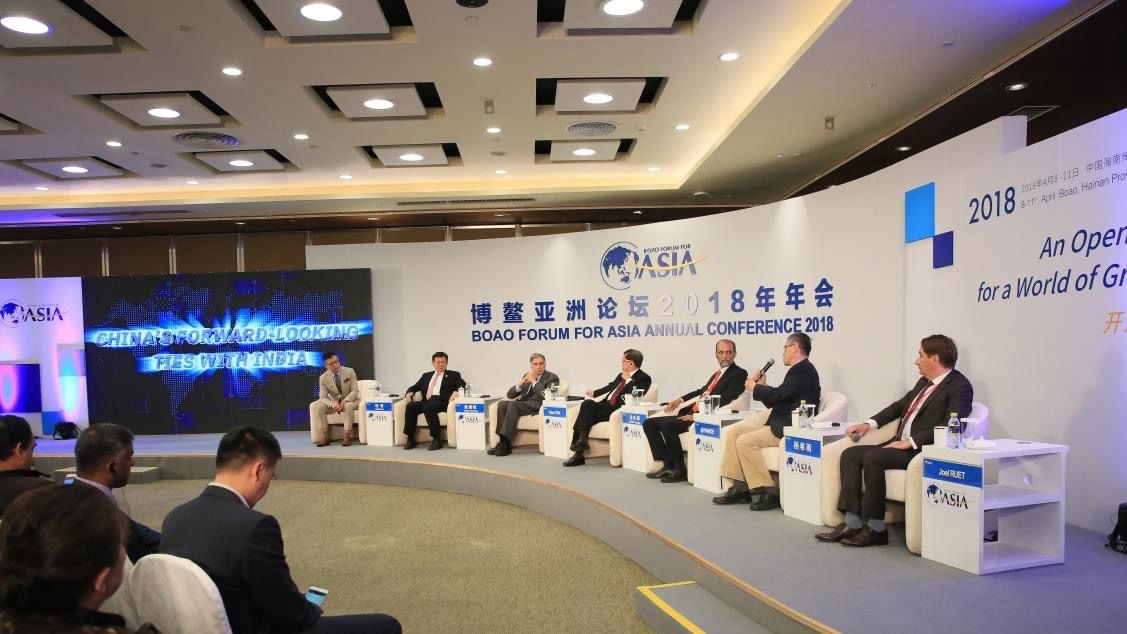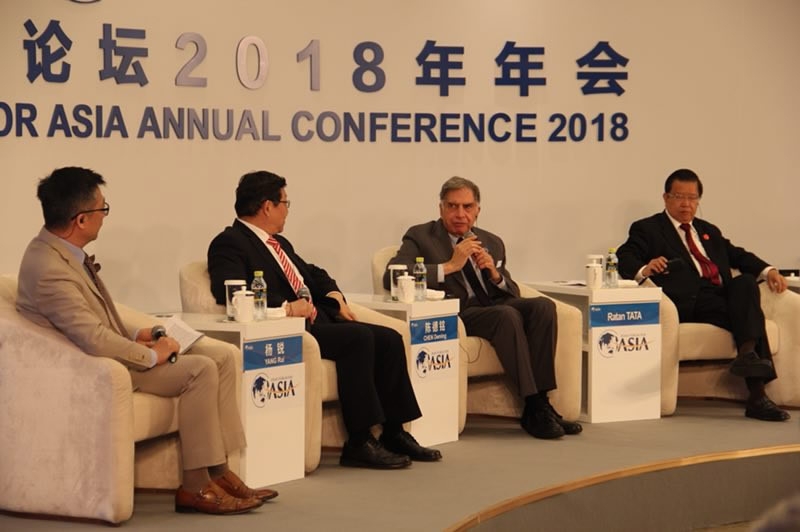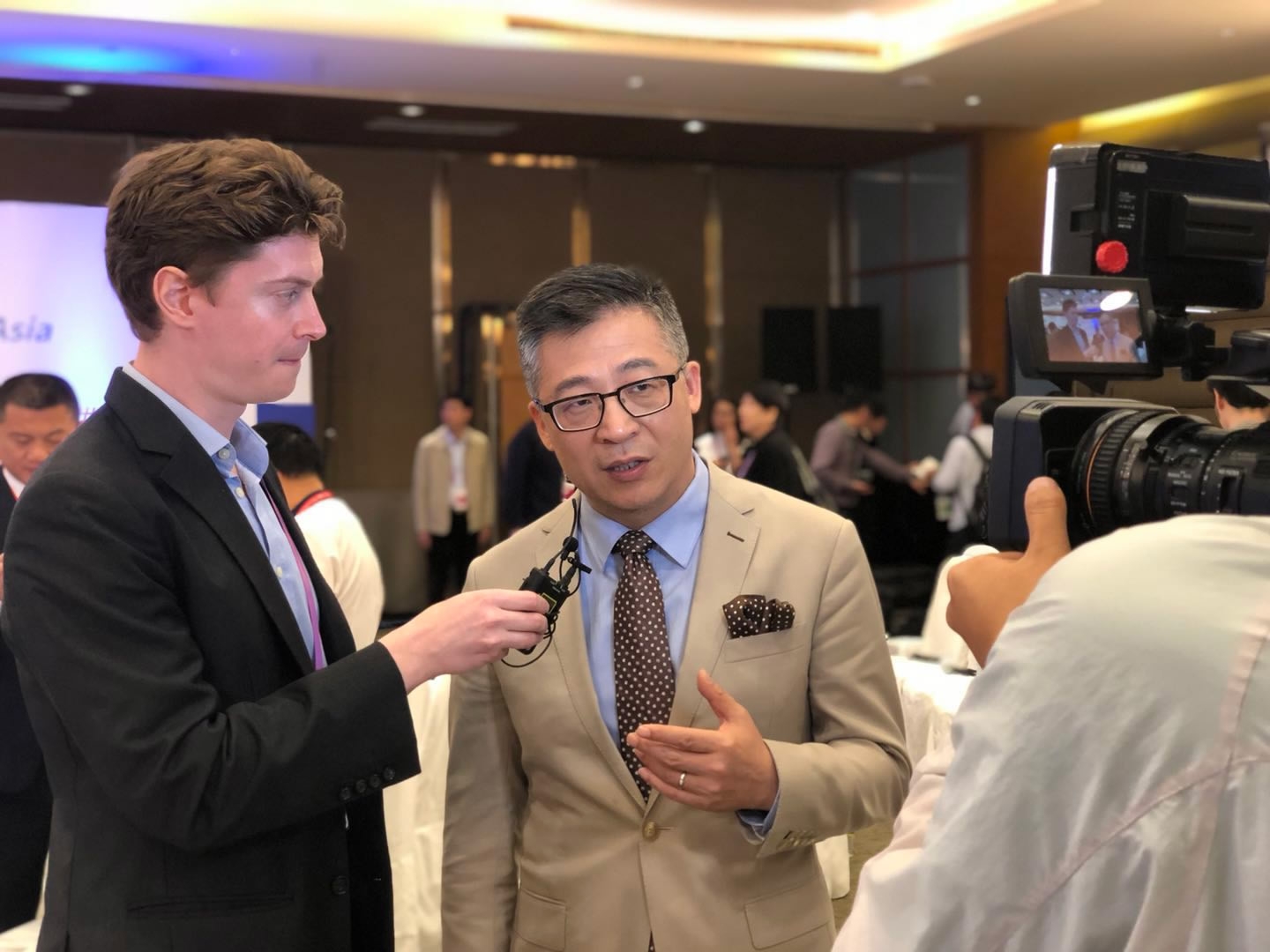
Politics
09:30, 10-Apr-2018
China and India: Trust key to turning potential into action
By John Goodrich in Boao

Building trust is central to improving the economic relationship between China and India, experts from both countries told a special CGTN panel at the Boao Forum for Asia on Monday.
In a debate hosted by Dialogue's Yang Rui, panelists considered how China and India, the two most populous countries in the world, can turn huge potential for economic cooperation into reality.
The two countries account for over 35 percent of the world's population and contribute about 20 percent of global GDP. However, bilateral trade accounts for only a small proportion of the global total.

CGTN's Yang Rui hosts a panel discussion on the China-India economic relationship at the Boao Forum for Asia, April 9, 2018. /CGTN Photo
CGTN's Yang Rui hosts a panel discussion on the China-India economic relationship at the Boao Forum for Asia, April 9, 2018. /CGTN Photo
Ratan Tata, former head of Indian multinational conglomerate Tata, said the countries had “tremendous opportunities in trade and commerce,” but added that “constructive and collaborative” trust was needed.
“For trade relations to change there’ll have to be a higher level of trust and confidence in each other. China is unfortunately to some extent seen in India as a threat on the trade front.”
Some in India see their neighbor as a threat because of its rapid growth, Tata said, adding that Beijing has “shot ahead” of New Delhi in production and trade in recent years.
Joint investments could be a way forward, he added, going on to say that the Belt and Road Initiative should be seen "not as a threat, but a connector."

"Dialogue" host Yang Rui speaks to CGTN Digital at the Boao Forum in Hainan, China. /CGTN Photo
"Dialogue" host Yang Rui speaks to CGTN Digital at the Boao Forum in Hainan, China. /CGTN Photo
Long Yongtu, chief negotiator for China’s accession to World Trade Organization, said the idea his country was a threat was a “misconception” and stressed that the neighbors have much in common.
“I really do not believe that China will pose a threat to India. There is an old Chinese saying, two tigers cannot live on the same mountain. But both India and China are not tigers. We are not aggressive. We are one dragon, which is supposed to be friendly, and an elephant in India. In this mountain of Asia, the elephant and dragon can live together very well.”
That view was largely shared by Indian economist Ajit Ranade, who said that it was “wrong to say all of India sees China as a threat” and stressed that there were “huge opportunities” for cooperation and said the countries were already in alignment on issues like climate change and energy.
Yang Xiyu, executive vice-head of the Boao Forum research institute, noted that both countries face many of the same challenges, such as poverty reduction and the environment.
Long firmly rejected the idea that China or India are vying to be economic superpowers “at this stage,” saying both countries were concentrating on issues at home: from poverty and the environment to financial risk.
He did question the balance of the Indian economy, suggesting it was “premature” for services to make up such a high proportion of GDP. He said China was ideally placed to help India increase its manufacturing base, perhaps even by exporting some labor-intensive jobs over the coming years.
The idea that the countries were fighting to be economic superpowers, however, was wrongly “built up by media, and ‘so-called economists’.”
Observers now look ahead to the Shanghai Cooperation Organization summit in Qingdao, China in June for the next steps in China-India relations.
2376km

SITEMAP
Copyright © 2018 CGTN. Beijing ICP prepared NO.16065310-3
Copyright © 2018 CGTN. Beijing ICP prepared NO.16065310-3